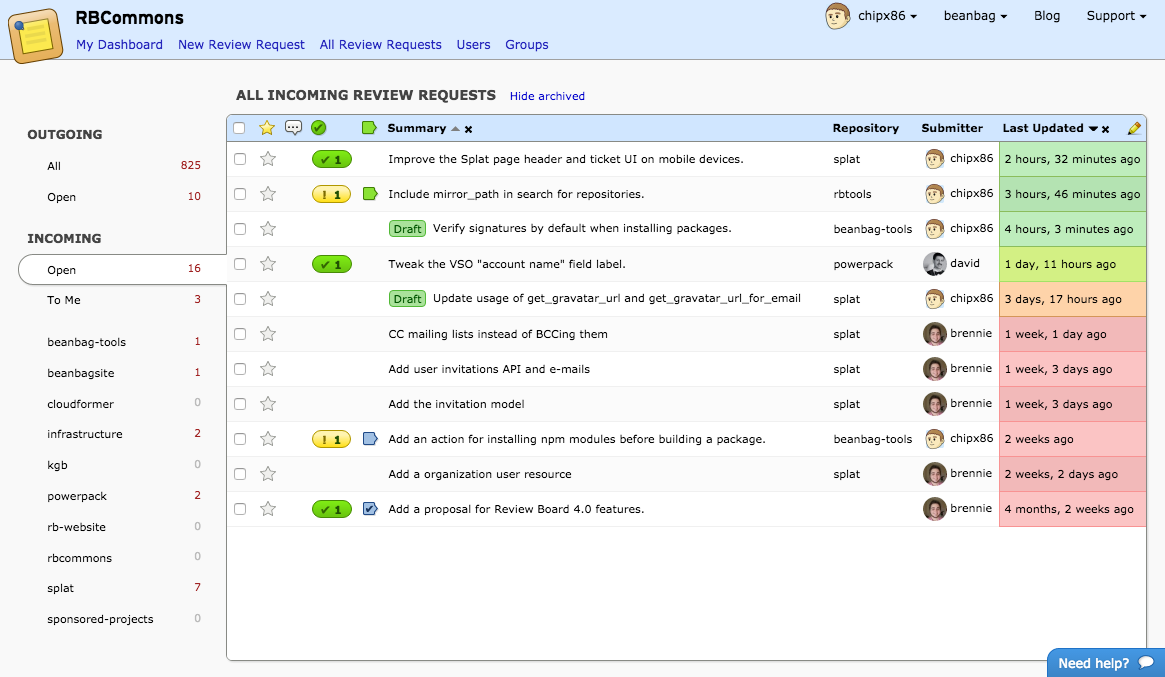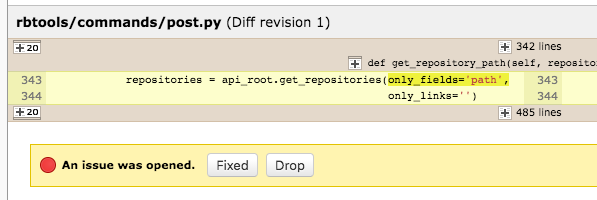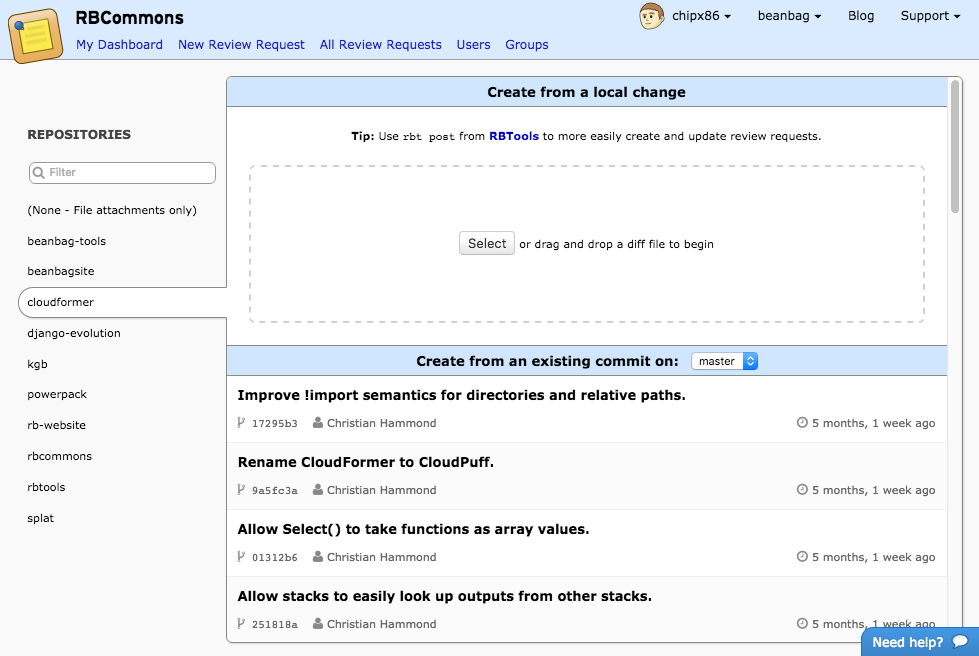It’s been too long since we last ran the ChangeLog series, and felt it was the right time to start it back up again. ChangeLog is a look into the latest behind-the-scenes work going into Review Board, RBCommons, and other Beanbag projects. While intended to be a weekly series, we’d like to start off with some of the bigger tasks and feature development from the past month.
Moving to Django 1.11 and Python 3
Today, all current versions of Review Board depend on Django 1.6, an old release that’s no longer supported by the Django project but is by us, and doesn’t support modern Python 3 releases.
We’ve been stuck on 1.6 because 1.7 introduced (and later mandated) a new way of handling database migrations, which is incompatible with the method we’ve always used. Reconciling the differences has been a challenge.
In the past month, we’ve made significant progress toward both the Django and Python updates:
- Djblets 2.0 (our development release) is now compatible with Django 1.6 through 1.11 and Python 2.7, 3.4, 3.5, and 3.6.
- Django Evolution (used for database migrations) now works with Django 1.6 through 1.11 and Python 2.7, 3.4, 3.5, and 3.6. Work’s being done to let it co-exist with Django migrations now.
- Review Board has started receiving patches for Django 1.11 and Python 3.5+ now. This is still in development, and likely won’t make the Review Board 4.0 release, but will be there for 5.0.
- RBTools 1.0 (shipping in a few months) now has full Python 3 support.
New Release Schedules
We’ve began moving to a train model for releases, and have all of our main and upcoming products now on the calendar.
Here’s what this currently looks like:
- Review Board 4.0 (with DVCS support!) is expected to ship in August, 2018
- Review Board 3.0.x releases will ship (generally) every other Tuesday
- RBTools 1.0 is expected to ship April 12th
- RB-Gateway is expected to ship March 28th
We’re planning to release a new major Review Board release every ~6 months, meaning smaller but more frequent releases. We’re still experimenting with the schedule and timeframe for these releases.
RB-Gateway
We’ve releasing RB-Gateway 1.0 this month. This is a microservice designed to sit in front of a Git or Mercurial repository, providing an API and set of integrations that can be used by Review Board or any other tool or service for more deeply working with your repository.
RB-Gateway doesn’t change your workflow, and can be dropped in with minimal effort. It completely replaces the cgit/gitweb workaround for standalone Git repositories, and means you don’t need to set up something more complicated like GitLab just to work with Review Board.
You’ll see more information on RB-Gateway’s capabilities when we release later this month, and we’ll cover improvements being made to it here.
Wrapping Up…
Those are really just the major highlights, to get everyone up to speed. It doesn’t include the new features we’ve recently built, like being able to filter files in the diff viewer based on filename patterns, a new command for creating Review Board extension source trees, the work done on kgb, or the crazy investigation into deadlocks that’s delayed Review Board 3.0.4.
Going forward, these will be smaller, covering only what’s been done over the past week. If you like these posts, and want to see this continue, please let us know! You can find us on reddit or on the community support list.








